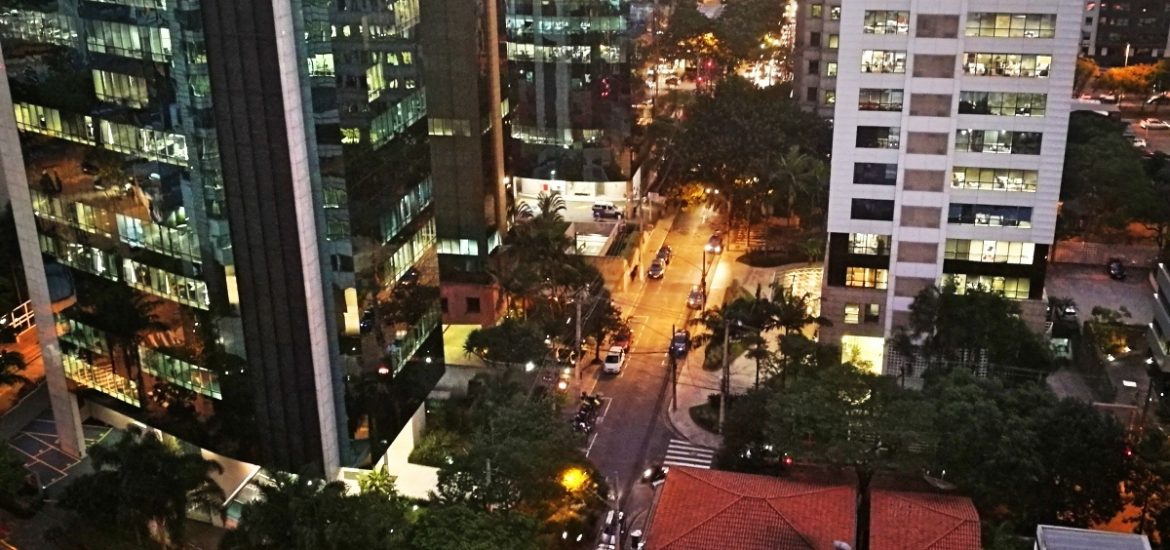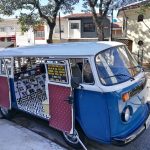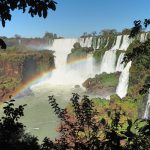What does first come to your mind when thinking about Brazil? Possibly you think like many others about feijoada, football, carnival, samba, caipirinha, nature or other typical stereotypes.
Possibly some people would ask themselves: Is this the entire truth?
A possible answer to this question is “yo”, a combination of yes and no, as our Professor and former world bank secretary Carlos Braga would have said, a year ago during my EMBA discovery expedition, organised by one of the world’s most reputable business school’s, IMD.
Certainly, e.g. football is not just a sports in Brazil but a manifestation of passion and a way of living like I have never seen in any other country before.
However, During that time we could learn more about how business works in Brazil including socio-economic, environmental and political factors.
Business meetings at companies like Embraer, Natura, Ernst & Young, the olympic committee and many others rounded up the picture of Brazil being a highly potential candidate for future economic success despite strong economic headwinds at that time.
Brazil was going through a signifiant inflation of more than 10 % a year, displaying the worst economic situation in years. Corruption scandals on state and economic level hindered the country to make significant progress and former president Dilma was facing impeachment.
If you ever complained about managing your taxes in your home country, you would be finally surprised how easy it is compared to Brazil. A visit at Ernst & Young revealed the enormeous difficulties in managing taxes whereas an expert is not only recommended, but essential.
Christoph Meyers, former CFO at Monte Azul, a Brazilian NGO in Sao Paulo, says: “Coming to Brazil with an European attitude can close many doors. Emotional intelligence as a leadership tool is needed more than ever to get things done.”
Interestingly, one year later I am in Brazil again and this time I had the chance to dive even deeper into the bureaucratic maize of this beautiful country. I was about to buy a motorcycle in Sao Paulo to travel South America. Meanwhile, the situation “changed”, Dilma was impeached – out of office – and corruption remained a critical issue in Brazil. The current president Temer is also being charged with corruption too, as well as other politicians of the country. There might be again another impeachment in the near future, which is sad to see especially after visiting the country a year ago, being in a similar “hopeless” situation.
As mentioned above, I was organising my motorbike travel from the business capital of Brazil, Sao Paulo. It started with organising my CPF, which is a tax number required in case of any purchases. Nobody was able to speak English which remains a general issue in the whole country. Even young, educated people who studied at local universities are still struggling with speaking an “international language”. I did not really understand the procedure, but I was following the process under which I had first to go to a post office to leave certain personal details. I payed the bill and went to the Federal do Receitas, where I received my CPF. Actually, pretty straight forward and I was absolutely optimistic. Another 5 weeks and some grey hair later, I also managed to purchase my motorbike. This was really a struggle with my usually high energy and there were times were I just wished not to have started in Brazil. Many not kept promises, delays, a looooooooooot of bureaucratic challenges which I don’t want to mention here again in detail. Processes just needed to be done multiple times, before a result was achieved. You can read my whole challenging story here.
In Cuiaba I met two students of computer sciences who are dreaming of living and working abroad in Canada, but speaking little to no English or French. I admire their optimism…
On my way from Sao Paulo to Cuiaba I crossed several regions of the country. Mato Grosso and Mato Grosso do Sul impressed me the most, because of their thousands of square km of agricultural rich diversity and resources (even though I got bored after a while seeing the one thousand and first corn field. It is no surprise the country is the world leader in agriculture. Read my article here.
Interesting as well is the naming of plant protection products in Brazil, and is widely called “Agrotoxicos”. Saying this out loud in Europe, people would go demonstrating and criticising the “toxins” used in agriculture. Therefore, it still sounds more convenient to use the name plant protection products 
Overall, I loved the warm-hearted and strong support of the Brazilians which you barely find in any other country. Even though I did not know a lot of people before, I could establish friendships across the whole country. Ranging from my personal travel doctor in São Paulo to people who came randomly to my motorbike, exchanging contact details in order to provide support and suggestions for my ongoing travel.
Furthermore, I could experience the violence and high crime rate in Brazil on my own behalf – read the story regarding my experience in a favela of São Paulo here. The wealth gap between the rich and the poorest of the poor is huge and very difficult to overcome, if the system continues to be corrupt and money continues to go into wrong “projects” or “pockets”. It is “crazy” to see those huge gaps while rich and poor just coexists next to each other! Consequently, a high poverty rate, crime and drug problems are drowning the whole country, making safety a real world problem almost everywhere. I had to keep my eyes and ears constantly open to be sure of where to go and where not. .It is simply not a life I would like to chose personally… It is pure luck where people are born and I was lucky enough to be born in Germany, a privilege most of the people are only dreaming of. I met a lot of people who were planning to leave their country in order to change their life for the “better” in Europe.
Highly interesting was also the influence of the Japanese – Brazilians (the largest community of Japanese living outside of Japan) on the countries towns and culture. “Perfection meets chaotic creativity”, read here my article regarding my experience.
I furthermore experienced the richness of its unbelievable nature. Driving all along the “green coast” of Brazil until reaching Manaus, in the middle of the Amazon and its worlds largest fresh water basin. Read my experience on the Amazon river here.
I have never seen any other nation living their lives in the current moment as much as Brazil is doing. Spontaneous get togethers, BBQs, relaxing at the beach, live music basically every evening, and so on and so on… simply enjoying life.
I keep my fingers crossed that Brazil and its wonderful people will overcome its challenges one day (today it’s the strike against petrol prices and its high taxes) and live up to their enormous potential.





















Perfect!! I agree about the “brazilian dream”, a lot of brazilians hope that someday they could live in another european country or North America, but they don’t even speak a second language. In addition to, I’m very happy that you have enjoyed it, and I wish visiting you in Germany soon.